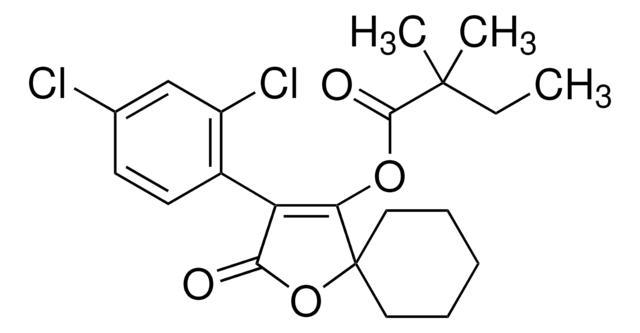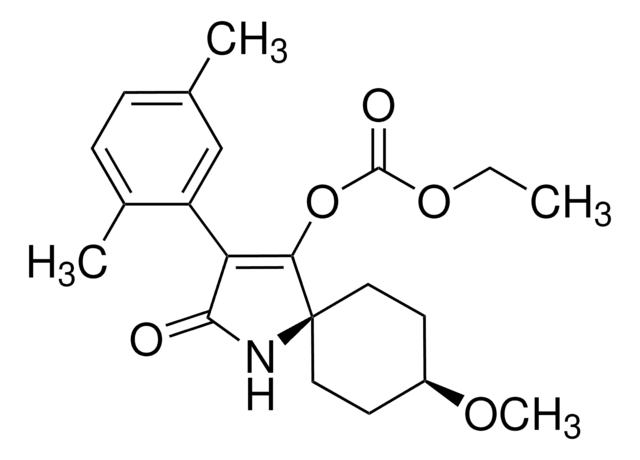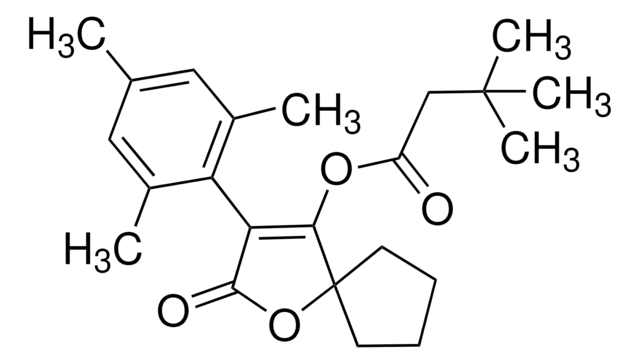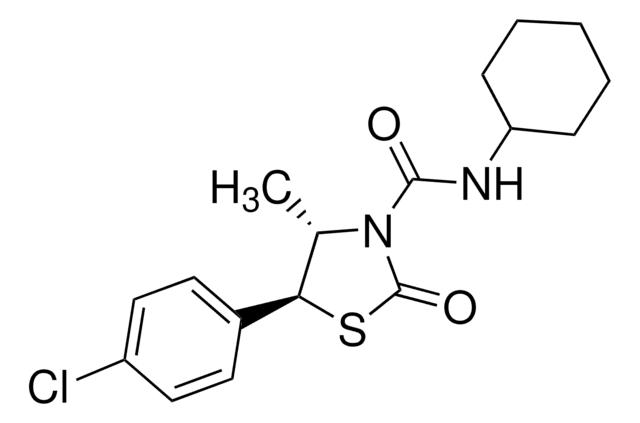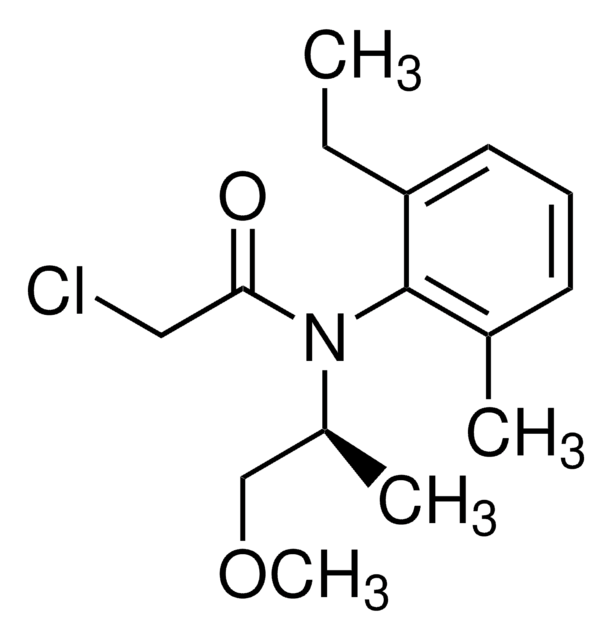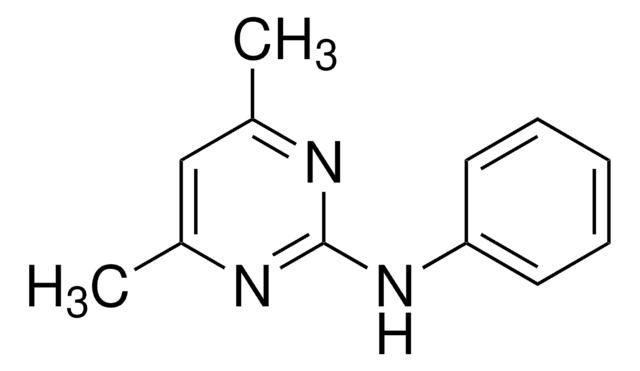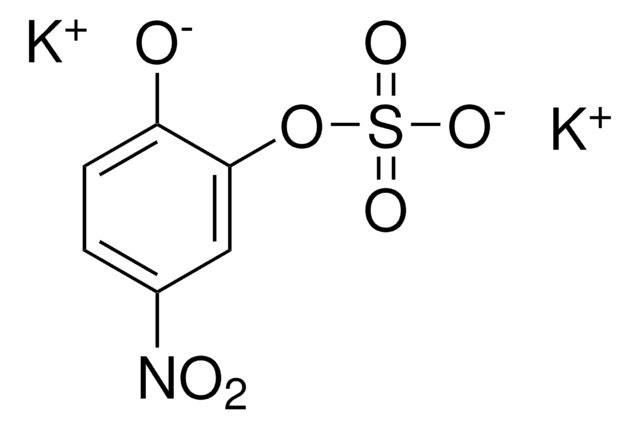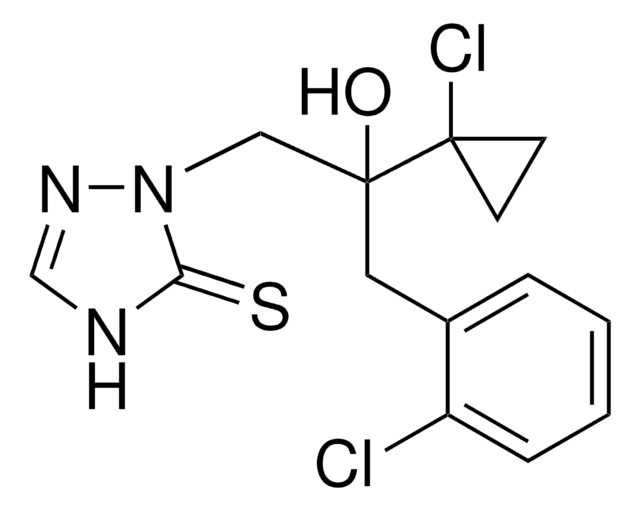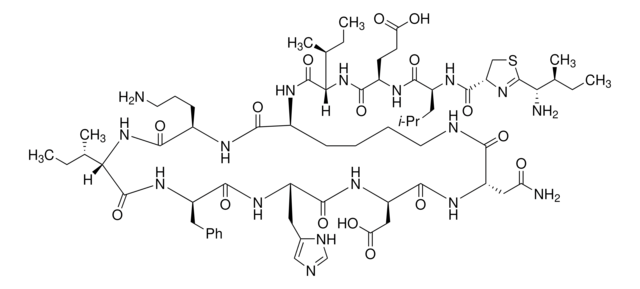Wichtige Dokumente
33654
Spirodiclofen
PESTANAL®, analytical standard
Synonym(e):
2,2-Dimethylbuttersäure-[3-(2,4-dichlorphenyl)-2-oxo-1-oxaspiro[4.5]dec-3-en-4-yl]-ester
About This Item
Empfohlene Produkte
Qualität
analytical standard
Qualitätsniveau
Produktlinie
PESTANAL®
Haltbarkeit
limited shelf life, expiry date on the label
Methode(n)
HPLC: suitable
gas chromatography (GC): suitable
Anwendung(en)
agriculture
environmental
Format
neat
SMILES String
CCC(C)(C)C(=O)OC1=C(C(=O)OC12CCCCC2)c3ccc(Cl)cc3Cl
InChI
1S/C21H24Cl2O4/c1-4-20(2,3)19(25)26-17-16(14-9-8-13(22)12-15(14)23)18(24)27-21(17)10-6-5-7-11-21/h8-9,12H,4-7,10-11H2,1-3H3
InChIKey
DTDSAWVUFPGDMX-UHFFFAOYSA-N
Suchen Sie nach ähnlichen Produkten? Aufrufen Leitfaden zum Produktvergleich
Verwandte Kategorien
Allgemeine Beschreibung
Anwendung
Rechtliche Hinweise
Signalwort
Danger
H-Sätze
Gefahreneinstufungen
Aquatic Chronic 1 - Carc. 1B - Repr. 2 - Skin Sens. 1B - STOT RE 2
Lagerklassenschlüssel
6.1C - Combustible acute toxic Cat.3 / toxic compounds or compounds which causing chronic effects
WGK
WGK 2
Flammpunkt (°F)
Not applicable
Flammpunkt (°C)
Not applicable
Persönliche Schutzausrüstung
dust mask type N95 (US), Eyeshields, Faceshields, Gloves
Zulassungslistungen
Zulassungslistungen werden hauptsächlich für chemische Produkte erstellt. Für nicht-chemische Produkte können hier nur begrenzte Angaben gemacht werden. Kein Eintrag bedeutet, dass keine der Komponenten gelistet ist. Es liegt in der Verantwortung des Benutzers, die sichere und legale Verwendung des Produkts zu gewährleisten.
EU REACH Annex XVII (Restriction List)
Hier finden Sie alle aktuellen Versionen:
Analysenzertifikate (COA)
Die passende Version wird nicht angezeigt?
Wenn Sie eine bestimmte Version benötigen, können Sie anhand der Lot- oder Chargennummer nach einem spezifischen Zertifikat suchen.
Besitzen Sie dieses Produkt bereits?
In der Dokumentenbibliothek finden Sie die Dokumentation zu den Produkten, die Sie kürzlich erworben haben.
Unser Team von Wissenschaftlern verfügt über Erfahrung in allen Forschungsbereichen einschließlich Life Science, Materialwissenschaften, chemischer Synthese, Chromatographie, Analytik und vielen mehr..
Setzen Sie sich mit dem technischen Dienst in Verbindung.